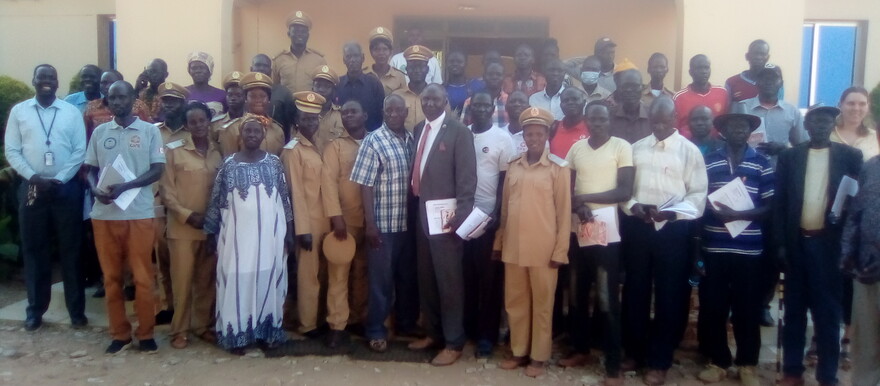More than 50 chiefs and local government administrators in Eastern Equatoria State concluded a two-day training to better understand and perform their duties.
The training, an initiative of the local government, was supported by United Nations Mission in South Sudan (UNMISS) Torit Field Office Civil Affairs Department. It concluded on Wednesday.
Abdallah Hassan Famai, the director general for local government in Eastern Equatoria state said the training was meant to build the capacity of chiefs to better handle challenges and coordinate with other state organs.
“Chiefs are complaining throughout, some of them are lacking capacity because of rapid changes. So, we from time to time, need to raise their capacities to revise their roles because according to our local government act the roles are there indicated in the act,” Hassan said.
The Paramount Chief of Ikotos County, Odongi Joseph, hailed UNMISS for the training saying the chiefs can now use what is available to them to handle issues affecting their communities.
“We are all the same, let us cooperate then we achieve what is expected of us. Let us carry the training we got here, more especially the boma chiefs. If you go back, call a meeting and deliver the message to the others,” chief Odongi said.
Aldo Ojara Akulino, the Paramount Chief of Magwi County urged the chiefs to implement the Local Government Act that spells out the roles of chiefs.
“That is what we have to follow. As community leaders, everything is there in the Local Government Act as has been explained and it is very clear. I am also very happy with executive officers and we are going to work with you hand to hand to develop this county of ours,” Chief Ojara said. “There are so many payams that don’t have executive officers and the work becomes difficult for the chiefs there.”




